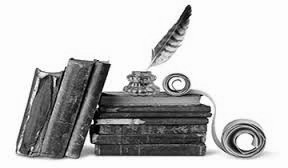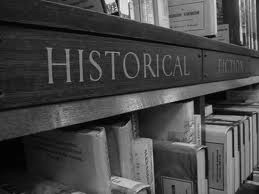 In Italy there are three questions all authors are asked inevitably: How much of yourself did you put in your book? How long does it take to write a book? Where do you take ideas?
In Italy there are three questions all authors are asked inevitably: How much of yourself did you put in your book? How long does it take to write a book? Where do you take ideas?
When you write historical fiction, there also is a fourth: Why do you write historical fiction?
I’m not pretending it’s genre-specific – I just don’t know. I don’t see anyone in their right mind asking writers why they write mainstream or literary fiction, but perhaps sci-fictioneers get asked why they write science fiction…? Still, for some reason, historical fiction seems to appear a slightly bizarre choice at best, and “Why do you write historical fiction?” tends to mean “Why don’t you write something contemporary?” No, really – it happens so frequently that one soon learns to practice some kind of answer that is neither too philosophical nor too pointed.
I’m often tempted to reciprocate with the mirror question: Why do you read historical fiction? I never do it in the end, but perhaps I should, because I’m genuinely interested in the answer: what does a reader seek in historical fiction?
I think I can try a few educated guesses, based partly on my own reasons for reading the genre, and partly on conversations and the observation of what gets published…
* A sense of general kinship with the past. The things that haven’t changed too  much through the centuries – which is what some authors (beginning perhaps with Josephine Tey back in the day) try to achieve by telling historical stories in contemporary language. On the other hand, there is also…
much through the centuries – which is what some authors (beginning perhaps with Josephine Tey back in the day) try to achieve by telling historical stories in contemporary language. On the other hand, there is also…
* A glimpse of habits, people, facts, and mindsets that the centuries have made removed and extraneous. Time traveling à la Hartley – to a foreign country, where they do things differently. Then again, fiction is fiction, and doors must be opened into the minds of people who not only do things, but think and feel differently – so that readers can identify with the characters.
* Something – something to fill the blanks between the lines in the textbooks. The shadows, lights, depth and layers behind the lists of treaties and battles, the Things We Don’t Know Anymore. It works well with either of the previous two – and makes the historical novelist’s job that of reconstructing what we don’t know starting from and within the bounds of what we know. All of this becomes far less important when one just seeks…
* A damn good yarn. And it’s perfectly legitimate, and there’s no denying that the past is a treasure trove of stories and people just screaming to be written. I could even say that this is, deep down at some level or other, one motive behind all historical fiction.
* Alternative, outlandish or controversial possibilities. Think of the quantity of fiction telling how Shakespeare didn’t write his own works, and who did it in his stead, and why… Sometimes it’s Antistratfordians wanting to present their theories around what they describe as the academic conspiracies of Stratfordian orthodoxy… Sometimes (and more enjoyably to me) it’s a game of What If. Which is why I like my ucronia and historical fantasy to be reasonably accurate in detail – but your mileage may vary.
* Something else entirely – in period costume. Torrid sex in (or out of) regency gowns, or parables against war, racism, discrimination, younameit – usually set in a time when such concerns didn’t even exist. Having strong objections to Psychological Anachronism, Generic Setting, the Unconventional Heroine, and Message Over Historical Accuracy, I must confess that this one makes me more than a little impatient – but this is something some readers do seek in their historical fiction. That I refuse to consider the result a historical novel at all, makes little difference.
And this is a little list off the top of my head – but what of you, O Readers? What do you seek in historical fiction?

A different world, familiar and yet distant and exotic.
But the “why do you write [insert genre here]?” followed by something like “why not something serious/intelligent/significant/with a dignity” is always there.
It carries a little sense of pity.
Why don’t you write something that actually has something to do with reality?
Why don’t you write a real book?
I might as well do a post about this…
LikeLike
Hm… I suspected it went with writing genre, period. Ah well.
Waiting for your post.
LikeLiked by 1 person
Pingback: Why do you read thrilling adventures and wild stories? | Karavansara